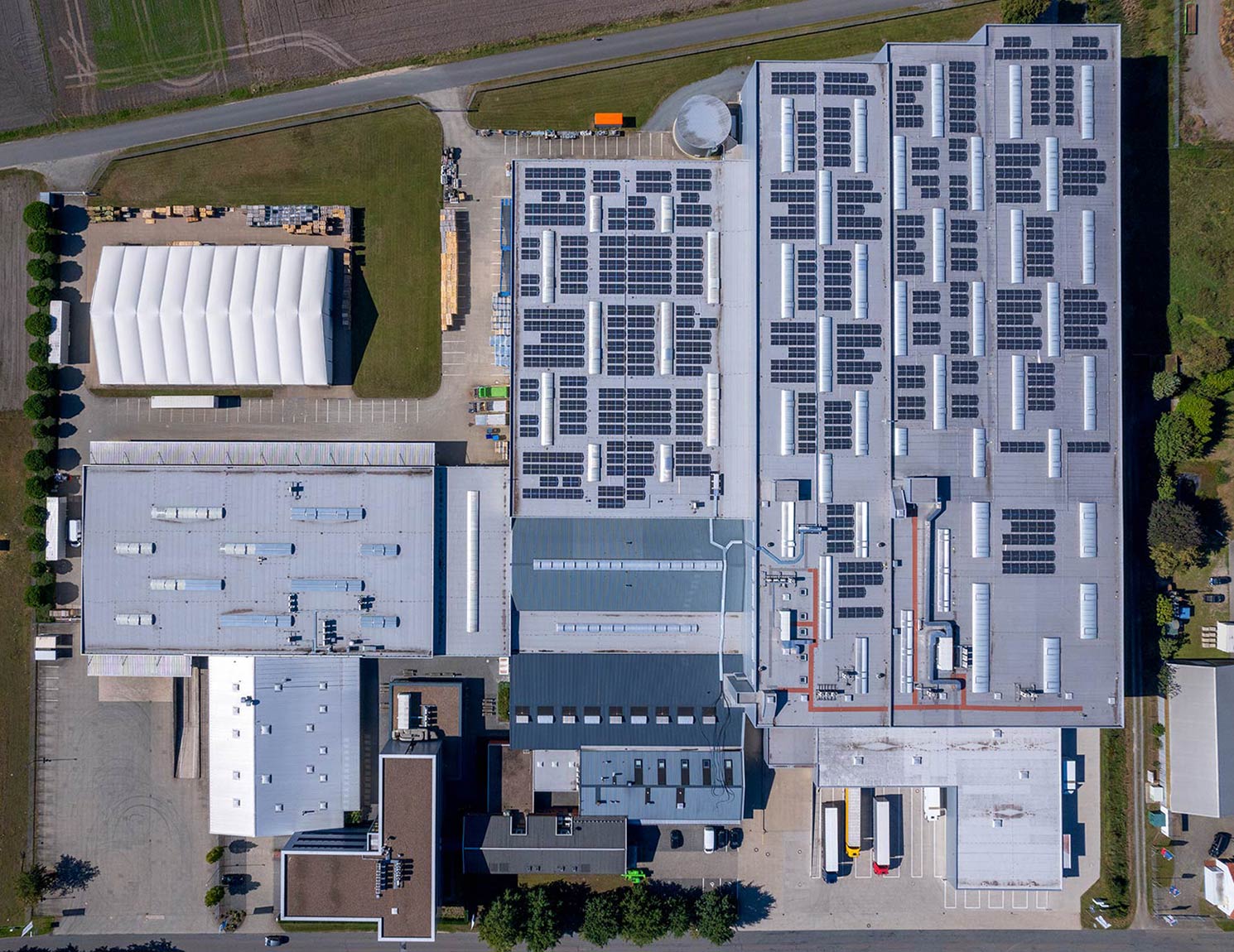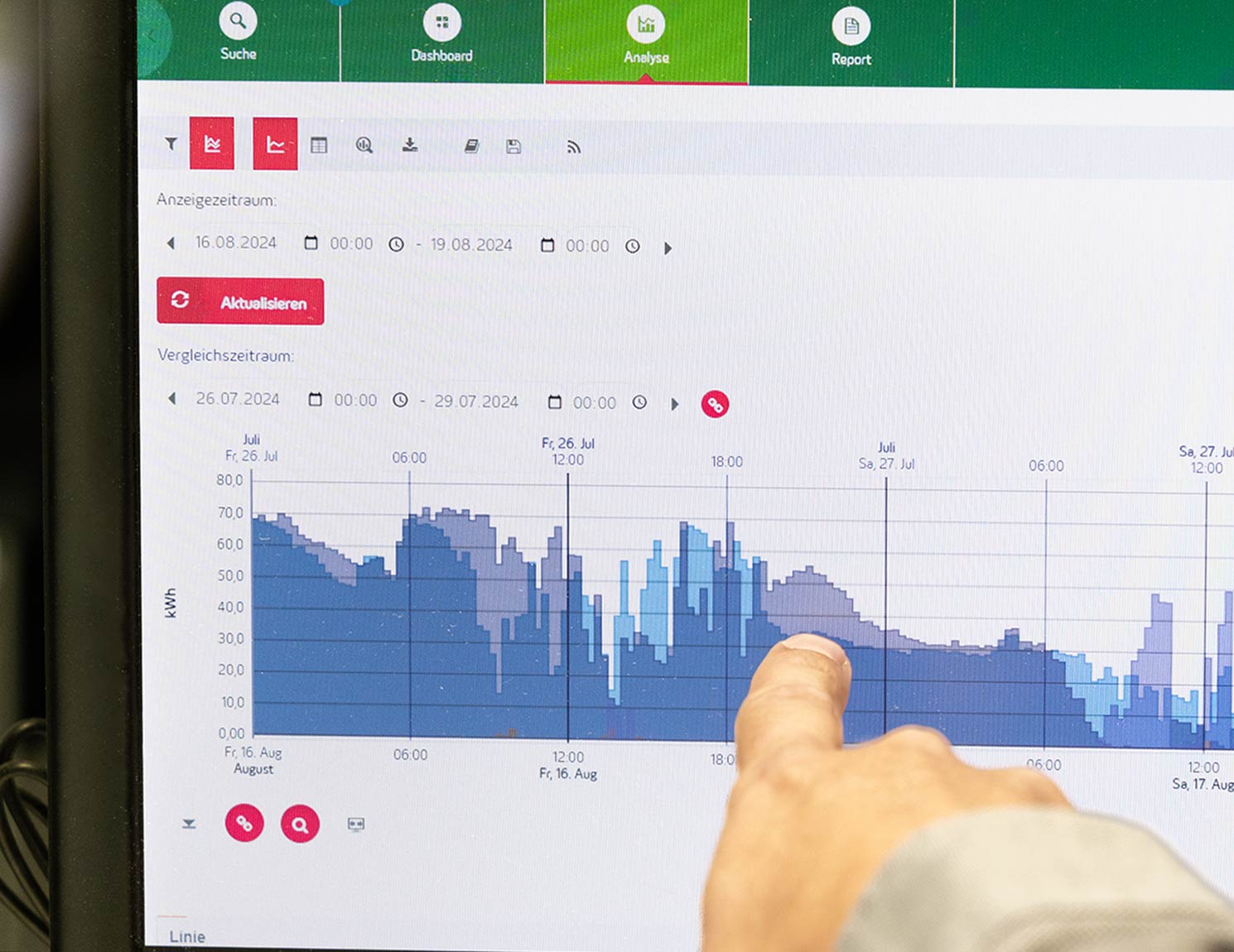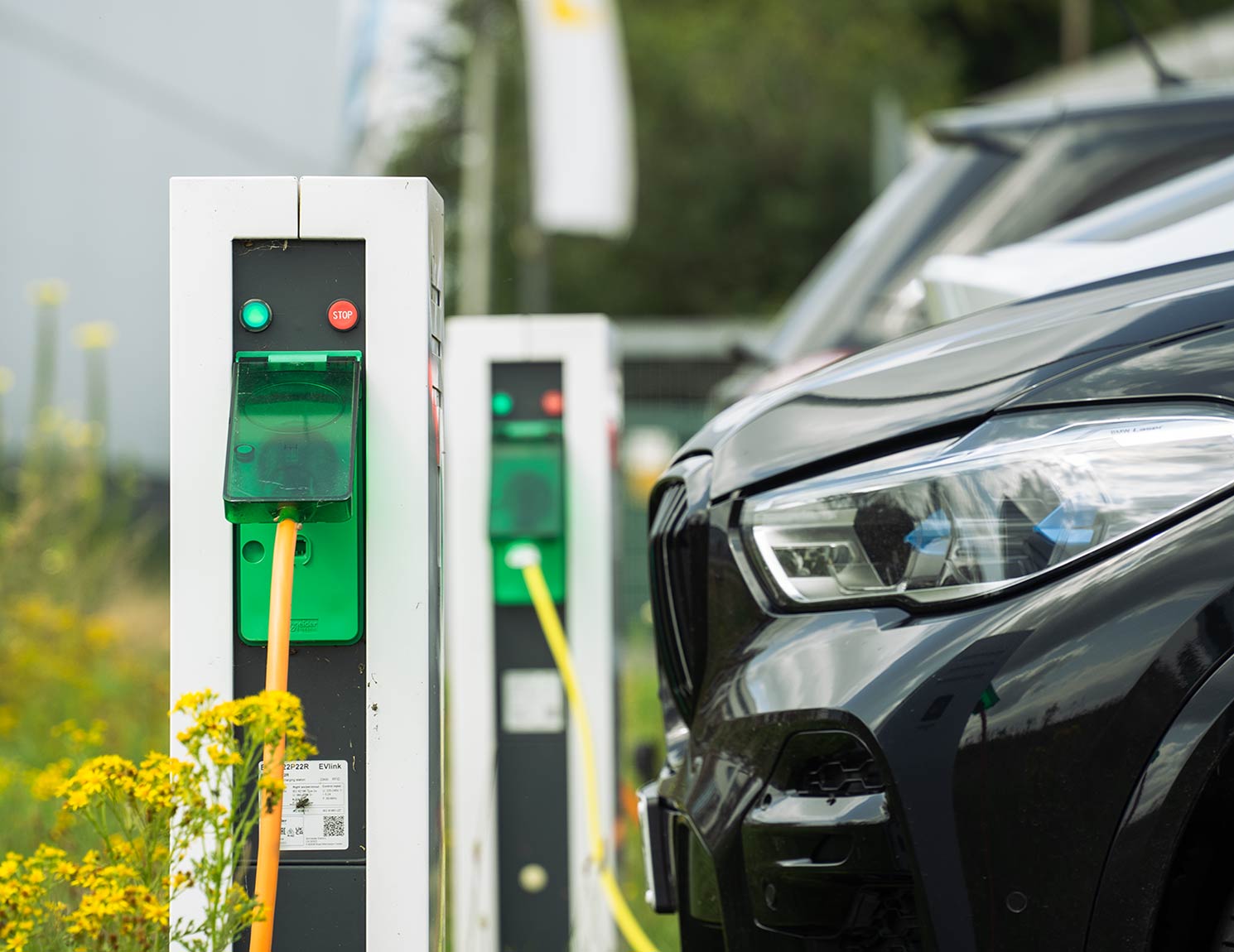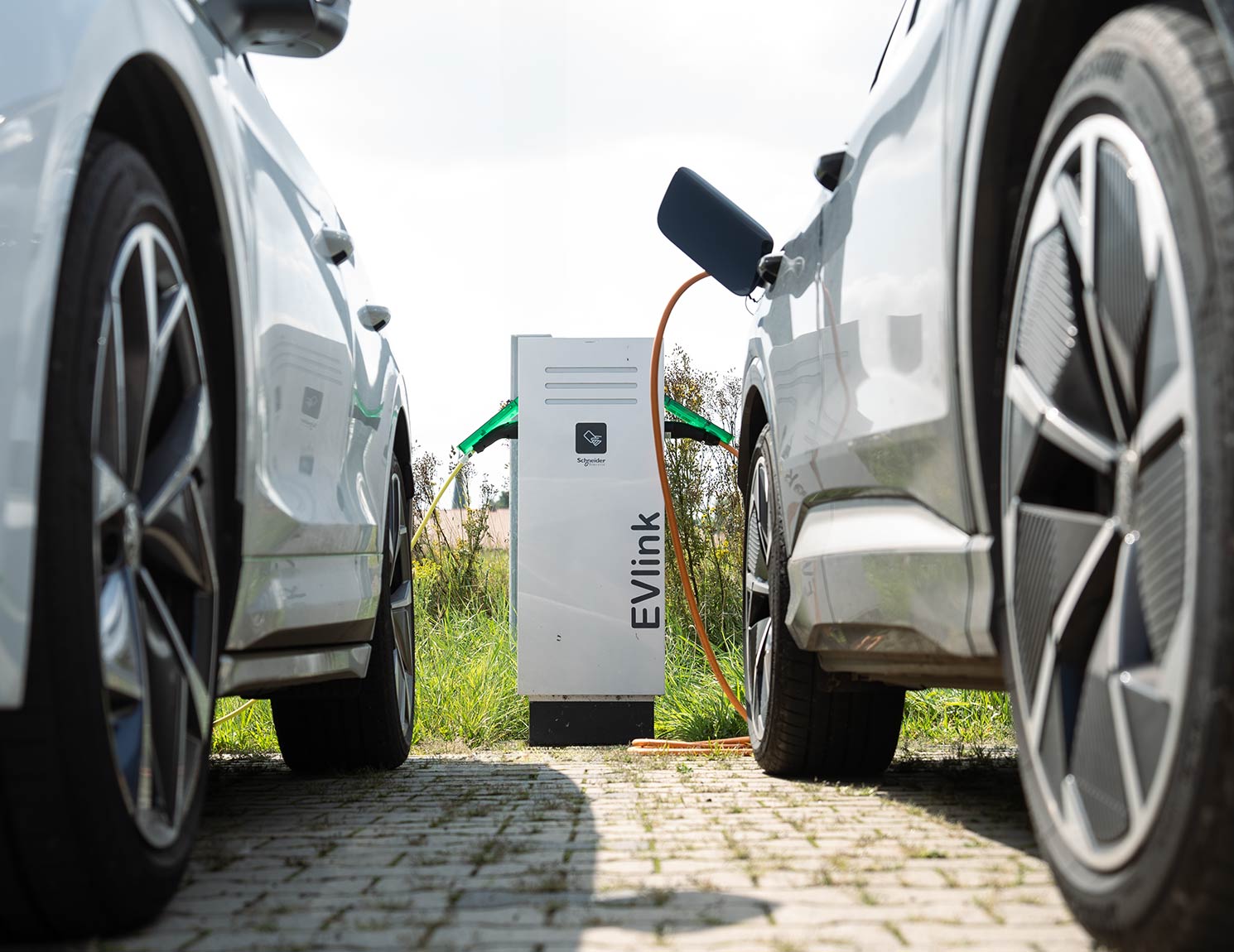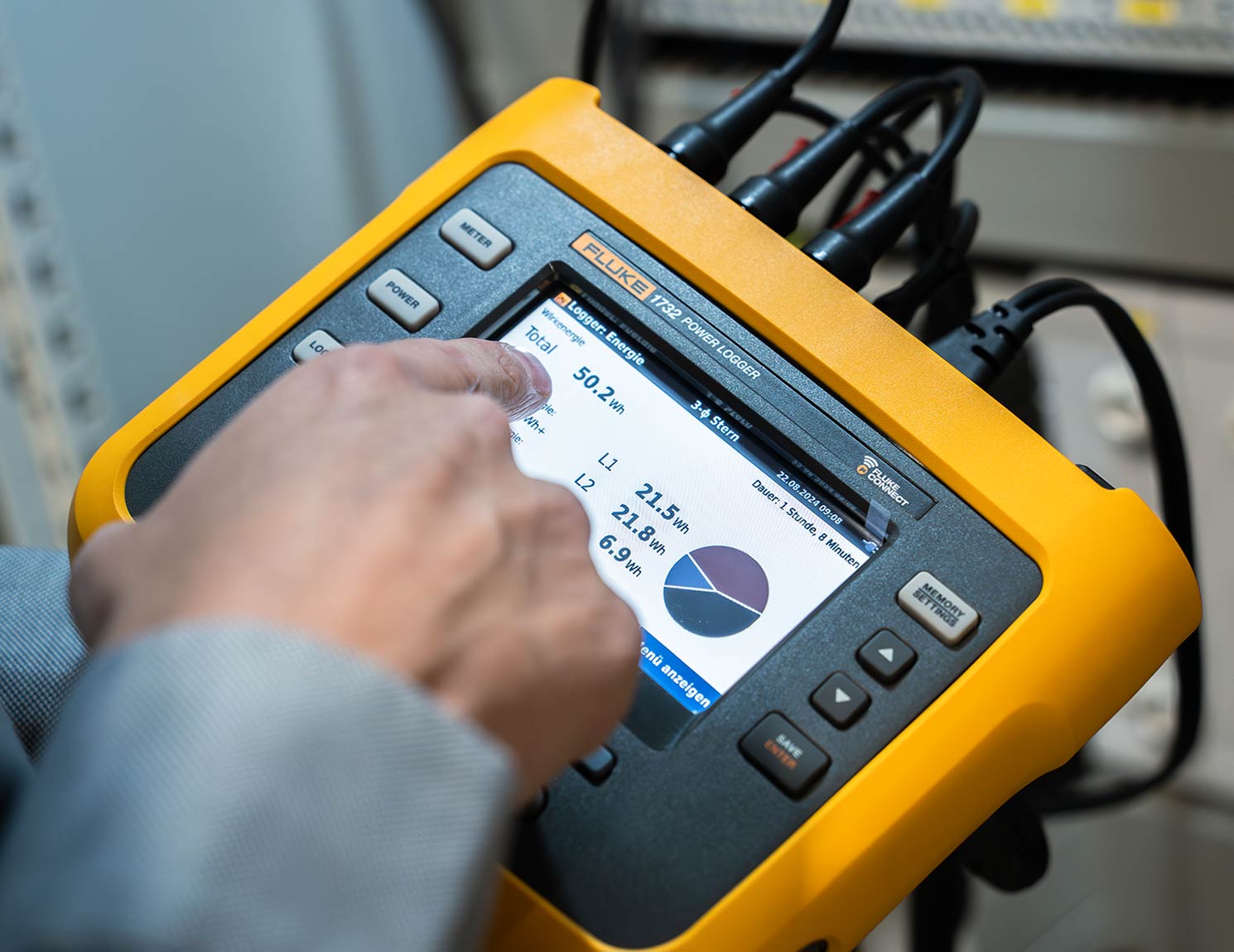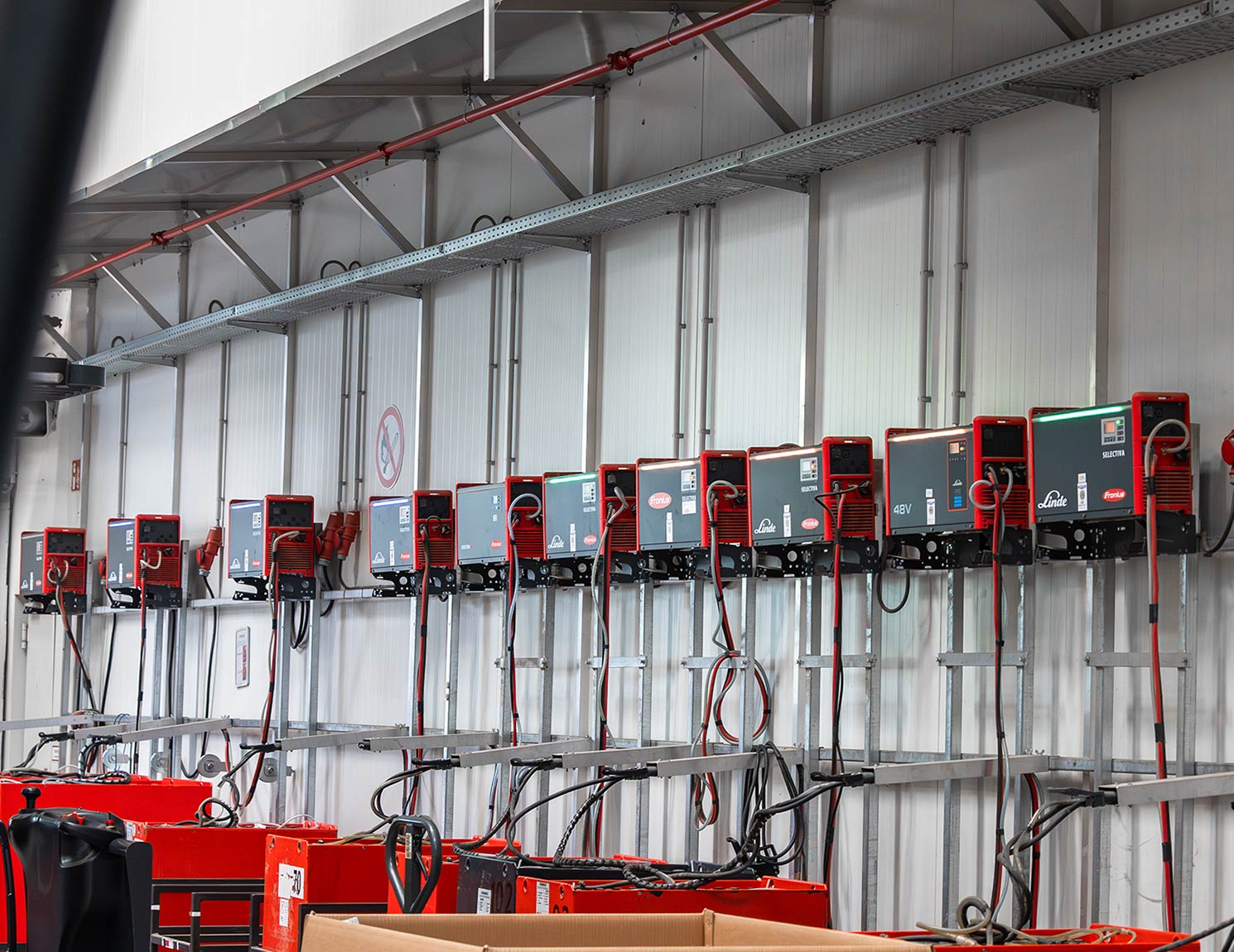The topics of sustainability and environmental protection are becoming increasingly important worldwide. Over a decade ago, Diesel Technic decided to use heat pumps and district heating from the neighbouring biogas plant to air-condition the buildings at the Kirchdorf site in Lower Saxony, Germany. In recent years, numerous other energy-related measures have been implemented, which have already led to improved energy efficiency.
With the clear goal of saving energy sustainably and in the long term and ensuring a climate-neutral and economical energy supply, numerous measures have already been implemented at the company headquarters to refurbish the building and improve energy efficiency. The supplier of automotive parts and accessories is thus increasingly focussing on the use of renewable energies, among other things.
The following measures were successfully completed as part of the modernisation of the company headquarters to reduce energy consumption:
PV system and electric cars as a must-have
A photovoltaic system was built to optimise the use of solar energy. The system is expected to generate around 550,000 kWh of electricity per year, around 80% of which will be used by the company itself. For example, the batteries of the new forklift trucks are charged at the weekend to utilise the PV electricity. This allows the company to make better use of periods with surplus electricity. The subsidiary in Dubai is a pioneer in the use of PV systems. Thanks to the high level of solar radiation, the solar modules on the roofs of the logistics halls generate an output of around 2,300,000 kWh per year, which is equivalent to powering around 750 single-family homes.
Electric vehicles reduce emissions and promote clean mobility. This is why the majority of the company fleet consists of electric cars. In 2023, two wallboxes and three dual charging stations with load management systems were installed.
Shading of skylight domes
One important measure concerns the shading of the skylight domes, which significantly reduces the heat input, which ultimately also leads to lower electricity consumption. In order to comply with the technical regulations for workplaces (ASR), the cooling load of the installed air conditioning technology would have to be 33% higher. Thanks to shading, not only can the expansion of the ventilation system be avoided – the required running performance of the system is reduced by around 40% in comparison.
LED lighting and energy meters
By replacing conventional lighting systems with energy-efficient LED lights, energy consumption can be significantly reduced. This measure has led to savings of around 360,000 kWh. In addition, measures were taken with regard to temperature and lighting in and around the building, such as switching off the illuminated advertising at night.
A mobile energy logger was purchased to measure individual electricity consumers or entire sub-distribution boards. Thanks to continuous logging, this measuring device determines where and when energy is consumed, allowing measures to be taken to improve energy efficiency. In this way, not only sources of energy wastage but also potential savings are identified.
More efficient chargers for industrial trucks
In the course of procuring new industrial trucks, old chargers were replaced with more efficient models. The overall efficiency of the new charging technology is in some cases 20% higher than the old technology.
Expansion of measures to subsidiaries
The other six Diesel Technic Group sites have also taken numerous measures to minimise the Group’s ecological footprint. These include a switch to LED lighting and the construction of charging stations for electric cars. Furthermore, the recycling of old packaging material for reuse for new customer deliveries and the reduction of paper consumption for even more paperless processes are being driven forward, to name just a few examples.
Diesel Technic will continue to take a responsible approach to the environment in the future. Further measures for more climate neutrality are therefore already being planned.
